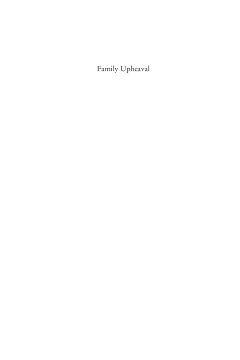
Additional Information
Book Details
Abstract
Pakistani migrant families in Denmark find themselves in a specific ethno-national, post-9/11 environment where Muslim immigrants are subjected to processes of non-recognition, exclusion and securitization. This ethnographic study explores how, why, and at what costs notions of relatedness, identity, and belonging are being renegotiated within local families and transnational kinship networks. Each entry point concerns the destructive–productive constitution of family life, where neglected responsibilities, obligations, and trust lead not only to broken relationships, but also, and inevitably, to the innovative creation of new ones. By connecting the micro-politics of the migrant family with the macro-politics of the nation state and global conjunctures in general, the book argues that securitization and suspicion—launched in the name of “integration”—escalate internal community dynamics and processes of family upheaval in unpredicted ways.
“This book improves understandings of family dynamics within a context transformed by international migration and sheds light on transformations within the migrant family... it is a valuable source for scholars working on the interaction between migration processes and family paths... [and] also appeals to policy makers interested in understanding the local impact of global events." · International Migration Review
“The book will be of great interest not only to anthropologists of South Asian diasporas but also to the growing and interdisciplinary field of family and marriage migration scholars who are attuned to the tremendous and contradictory powers of nation-states to (re-)shape families and other intimate relations.” · The Nordic Journal of Migration Research (NJMR)
“…a substantial contribution to migration studies and anthropology in its own right in providing a refreshing, unconventional, approach to Pakistani migrants in the transnational space of Denmark, Pakistan and Sweden, which in the light of the gross simplifications and stereotypization in the public Danish news media, provides a humanization of the many responses and strategies to Pakistani-Danish family upheaval, but the book also contributes with a comprehensive, high-quality case study of Pakistani migrants in the Nordic countries, which has been almost entirely absent in English until now.” · Peter Hervik, Malmö University
“…the book will make a valuable contribution and command a wide readership with an interest in Muslim and immigrant populations in Europe, in anthropology, sociology and migration studies.” · Pnina Werbner, Keele University
“This book delivers on its promise. It skillfully locates the upheavals currently being experienced in Danish Pakistani family life in the context of the Danish nation-state's governance of Muslim immigrants, the post 9/11 securitisation and the corresponding insecurities for migrants.” · Alison Shaw, Oxford University
Mikkel Rytter is Assistant Professor in the Department of Culture and Society at Aarhus University where he is affiliated with the research program on contemporary ethnography and part of a cross-disciplinary project on Sufism and Transnational spirituality.
